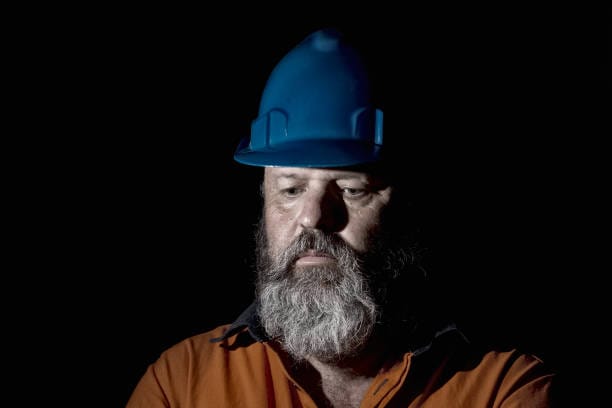Mental Health in the Construction Industry: Breaking the Silence

As World Mental Health Day approaches on October 10th, it's crucial to shed light on an often-overlooked issue in one of the world's most demanding industries: mental health in construction. The construction sector, known for its physical demands and high-pressure environments, is facing a silent crisis that affects thousands of workers daily. This blog post delves into the current state of mental health in construction, explores the benefits of journaling as a coping mechanism, and offers a call to action for industry professionals.
The Hidden Crisis in Construction
The construction industry has long been associated with physical hazards, but the mental toll on workers often goes unnoticed. Recent studies and reports have highlighted alarming trends:
- High Suicide Rates: Construction workers are at a significantly higher risk of suicide compared to other occupations. In some countries, the suicide rate in construction is up to 3.7 times higher than the national average.
- Prevalence of Mental Health Issues: Anxiety, depression, and stress are rampant in the industry. A survey by the Construction Industry Training Board (CITB) found that 26% of construction workers had experienced suicidal thoughts, and 97% had experienced stress at work.
- Stigma and Silence: The "tough guy" culture in construction often prevents workers from seeking help or discussing their mental health concerns openly.
- Work-Related Factors: Long hours, job insecurity, physical strain, and high-pressure deadlines all contribute to poor mental health among construction workers.
- Substance Abuse: The industry has higher rates of alcohol and drug abuse compared to many other sectors, often used as coping mechanisms for underlying mental health issues.
Breaking Down the Barriers
Addressing mental health in construction requires a multi-faceted approach:
1. Raising Awareness
The first step in tackling this crisis is acknowledging its existence. Companies, trade unions, and industry bodies need to bring mental health discussions to the forefront. This includes:
- Regular mental health workshops and training sessions
- Visible campaigns on construction sites promoting mental health resources
- Integration of mental health awareness into safety briefings
2. Changing the Culture
The traditionally masculine culture of construction needs to evolve to create an environment where seeking help is seen as a strength, not a weakness. This involves:
- Leadership setting an example by openly discussing mental health
- Encouraging peer support and mentoring programs
- Challenging and changing language that stigmatizes mental health issues
3. Providing Resources
Construction companies must invest in mental health resources for their employees:
- On-site counselors or access to teletherapy services
- Employee Assistance Programs (EAPs) that include mental health support
- Stress management and resilience training
4. Improving Work Conditions
Addressing the root causes of poor mental health in the industry is crucial:
- Reviewing and improving work schedules to reduce excessive overtime
- Enhancing job security through better contracts and communication
- Implementing strategies to reduce workplace stress and improve work-life balance
The Power of Journaling in Mental Health
One often overlooked but highly effective tool in maintaining mental health is journaling. As we approach World Mental Health Day, it's worth exploring how this simple practice can make a significant impact, especially for those in high-stress industries like construction.
Proven Benefits of Journaling
- Stress Reduction: Writing about stressful events helps process them, reducing their impact on your mental state.
- Emotional Clarity: Journaling helps identify and understand complex emotions, making them easier to manage.
- Problem-Solving: Writing problems down often leads to discovering solutions you hadn't considered before.
- Goal Setting and Achievement: Regular journaling can help clarify goals and track progress towards them.
- Improved Memory: The act of writing helps cement experiences and learnings in your memory.
- Boosted Mood: Expressive writing, especially focusing on gratitude, can significantly improve mood and overall well-being.
- Better Sleep: Journaling before bed can help clear your mind, leading to improved sleep quality.
Implementing Journaling in the Construction Industry
For construction workers, journaling can be particularly beneficial:
- End-of-Day Reflections: Taking a few minutes at the end of each workday to jot down thoughts can help process the day's events and leave work stress at work.
- Project Milestones: Documenting progress on projects can provide a sense of accomplishment and motivation.
- Safety Observations: Using a journal to note safety concerns or ideas can contribute to a safer work environment and give workers a sense of control.
- Gratitude Practice: Noting positive aspects of the job or interactions with colleagues can help maintain a more positive outlook in a challenging environment.
A Call to Action: Sharings.me
As we recognise the importance of mental health support and the benefits of journaling, it's crucial to have accessible tools that make these practices easy and effective. This is where Sharings.me comes in.
Sharings.me is an innovative platform designed to make journaling simple, secure, and beneficial for everyone, including those in high-stress industries like construction. Here's why you should consider visiting Sharings.me
- User-Friendly Interface: The platform is designed for ease of use, making it simple to start and maintain a journaling habit, even for those new to the practice.
- Privacy and Security: Your thoughts and reflections are personal. Sharings.me prioritises the privacy and security of your entries, giving you peace of mind.
- Accessibility: Whether you're on a construction site or at home, you can access your journal from any device, making it easy to maintain consistency.
- Guided Prompts: If you're unsure where to start, Sharings.me offers guided prompts that can help you reflect on your day, set goals, or focus on gratitude.
- Progress Tracking: The platform allows you to track your mood and well-being over time, providing valuable insights into your mental health journey.
- Community Support: While your entries remain private, Sharings.me offers the option to connect with a supportive community, allowing you to share experiences and find support if you choose to.
By incorporating journaling into your daily routine through a platform like Sharings.me, you're taking a proactive step towards better mental health. It's a small action that can have a significant impact on your overall well-being, especially in a challenging industry like construction.
Conclusion: Building a Healthier Future
The construction industry builds the physical structures of our world, but it's time to focus on building a stronger foundation for the mental health of its workers. As we approach World Mental Health Day on October 10th, let's commit to breaking the silence surrounding mental health in construction.
Remember, seeking help is not a sign of weakness—it's a sign of strength and self-awareness. Whether it's talking to a colleague, seeking professional help, or starting a journaling practice on Sharings.me, taking that first step towards better mental health can make all the difference.
To all the hardworking individuals in the construction industry: your mental health matters. You build our world; now it's time to build a support system for yourselves. Visit Sharings.me today and take the first step towards a healthier, more balanced life. Together, we can construct a future where mental health is prioritised, discussed openly, and supported fully in the construction industry and beyond.




